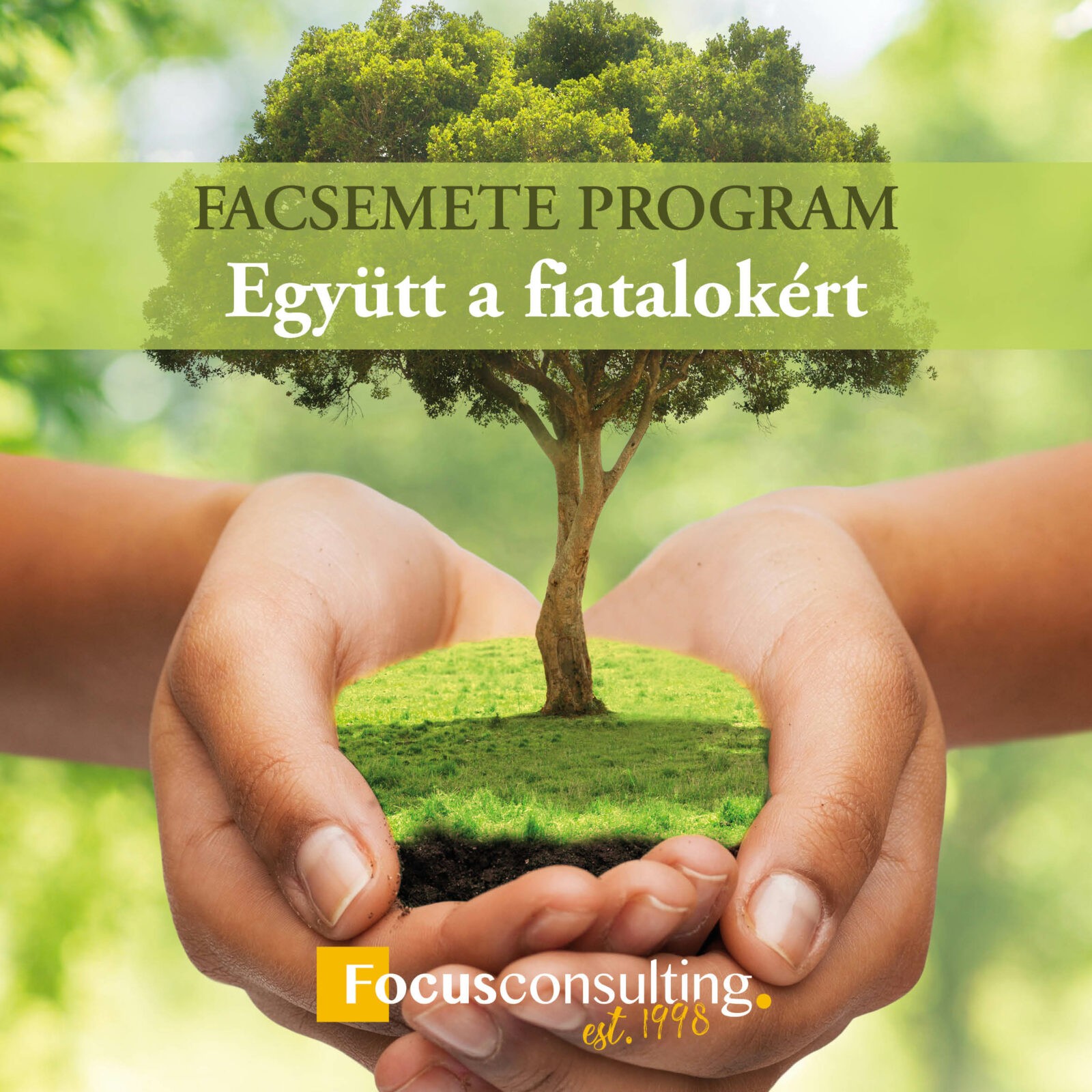The Goal of the Initiative:
The purpose of this initiative is collaboration. Together, let’s help young people transitioning out of child protection care find employment and even housing. While students over the age of 16 can participate in the program, the primary focus is on those aged 18 and above.
Our company, Focus Consulting, is dedicated to supporting disadvantaged children, and we seize every opportunity to assist them. In the past, we have supported children living in mother shelters, and now we would like to shift our focus to older children.
Most young people leaving the child protection system start their adult lives without a home or job. At the same time, we observe that our clients constantly face challenges in filling positions for physical labor, often resorting to foreign guest workers to address this issue. To provide a completely free alternative, we launched the “Sapling Program” two months ago.
About Our Company:
Focus Consulting has been specializing in the recruitment, selection, leasing, and interim management of white collar workers for 25 years. With more than 10,000 successful projects under our belt, we have no intention of changing our service portfolio. However, this initiative is specifically aimed at ensuring the supply of physical labor and is launched solely for the benefit of young people, free of charge. Its goal is to help disadvantaged youth emerging from Hungarian child protection institutions gain opportunities for livelihood, possibly housing, and allow them to take root in the world, even without parental support.
This is why we named the initiative the “Sapling Program,” as the goal is to work together with company leaders and HR managers like you to help these “saplings” find fertile ground, grow strong, and thrive for the benefit of all.
Where Did the Idea Come From?
I grew up professionally at GE and later built my career in HR. Inclusivity was always an essential value at GE and remains so for me personally. I am also raising my children with this mindset. When the Világszép Child Protection Foundation established the Pendula Kindergarten in 2018, we were among the first families to join. It’s important to note that the kindergarten embodies inclusivity: children with special educational needs (SEN), children living in foster homes, and families typically considered “average” (like ours) all attend.
When we first enrolled, I had many doubts and concerns. I worried that children from foster homes might use inappropriate language, be more prone to fighting, and so on. I didn’t know how Mother’s Day celebrations would go—should I even dare to hug my own children in front of those little ones growing up without parents? The list of questions was long, but my heart still pulled me in this direction, overriding all my mental hesitations. Time has proven that my heart made the right decision, as it always does. Over the seven years my two children spent at Pendula, we experienced countless beautiful moments—enough to fill an entire article. But let me share one story.
One morning, when the bus arrived with children from various foster homes, a little girl walked into the dressing area silently, her tears falling. I hugged her and asked why she was crying. She simply said she wanted to wear a skirt too. My daughter was wearing a pink frilly skirt, which the foster child really liked. It’s important to understand that foster children often don’t have personal belongings—not even a teddy bear—and they wear whatever clothes happen to be available. I whispered to my 4-year-old and suggested we give the spare skirt from her kindergarten bag to the little girl. Without hesitation, my daughter grabbed the skirt, which the foster girl put on with shining eyes. They then held hands and went into the classroom together.
For my children at Pendula, playing with a child with SEN was never an issue. It was natural for them to recognize what their friend was good at and where they needed support. Mother’s Day wasn’t about reciting poems but about a Mother’s Day picnic. Mothers with one free hand soon found they had another hand to hold, and there was always room on our laps for more little ones. It was also natural for me that the drawings displayed on our refrigerator at home weren’t just from my children but also from the foster children who had honored me with their artwork.
Was it okay to hug my own children in front of the others? Yes! That was the goal: to show the children who were growing up without a family what a mother and father’s relationship with their child looks like. Whenever possible, we arrived early as parents to play with the children in the classroom, specifically to provide such examples.
Since becoming part of the Világszép-Pendula family, I’ve often thought about how I could contribute to children in child protection care. Within the Foundation, I could have volunteered as a storyteller in foster homes or as a mentor. However, after discussing it with the kindergarten director, I realized I wouldn’t have the emotional strength for either role. This year, after my daughter, my son also graduated from Pendula, but I don’t want to and cannot detach myself from this mission. I want to continue helping these children in my own way. This is how the idea for the “Sapling” initiative was born, and our company, Focus Consulting, embraced it wholeheartedly.
The opportunity was clear: many of our clients partner with us for intellectual workforce recruitment and interim services. Why couldn’t we support them with physical labor workforce in a way that also helps these disadvantaged young people?
What Does a “Sapling Company” Gain?
As an HR professional, I can wholeheartedly recommend this program to any company looking to develop organizational EQ and inclusivity at the systemic level. It’s an excellent way to boost employee engagement since many of us enjoy working in environments that provide opportunities to support those who are disadvantaged for any reason. Not to mention, if a company has specific goals related to “diversity,” this initiative is a fantastic way to enhance those metrics.
It’s Not “Sugarcoated”
Let me emphasize this point. Even in the two months since the program began, it’s become clear that some young people who have grown up without proper role models can pose challenges to those of us trying to lend a helping hand. Statistics show that the majority of lottery winners lose all their winnings within the first year. Why? Because they lack the framework to manage such a large sum of money. The same is true for these young people. It’s not enough to hand them a “winning ticket” in the form of a job opportunity—we must also support them in learning how to make use of it practically and how to retain their jobs in the long term.
Within the initiative, we will encourage “Sapling Companies” to share both positive and negative experiences with each other, as there is much to learn from these. For the program to succeed, it won’t be enough for us at Focus Consulting to act as the link between organizations supporting these young people and company leaders. For those deeply interested in what it takes to succeed in working with these young individuals, I recommend watching the TEDx talk by Ágnes Wirtz, founder of the Világszép Foundation: https://www.youtube.com/watch?v=mgdolCmpo1o.
How to Join?
If you’d like to join the initiative, please contact me directly, and I’ll provide more details.
We also welcome applications from organizations and foundations that work with young people leaving child protection care and seeking jobs. This will help us ensure that more young people learn about job opportunities offered by “Sapling Companies.”
Other Ways to Support:
If you don’t feel ready to join the program but the topic resonates with you, feel free to reach out to the Világszép Child Protection Foundation. There are many ways to contribute, whether as a company or an individual.
The goal is noble, the task is challenging, but I believe many win-win success stories can emerge if we work together.
Contact:
Éva Domján
+ 36 70 883 1315

